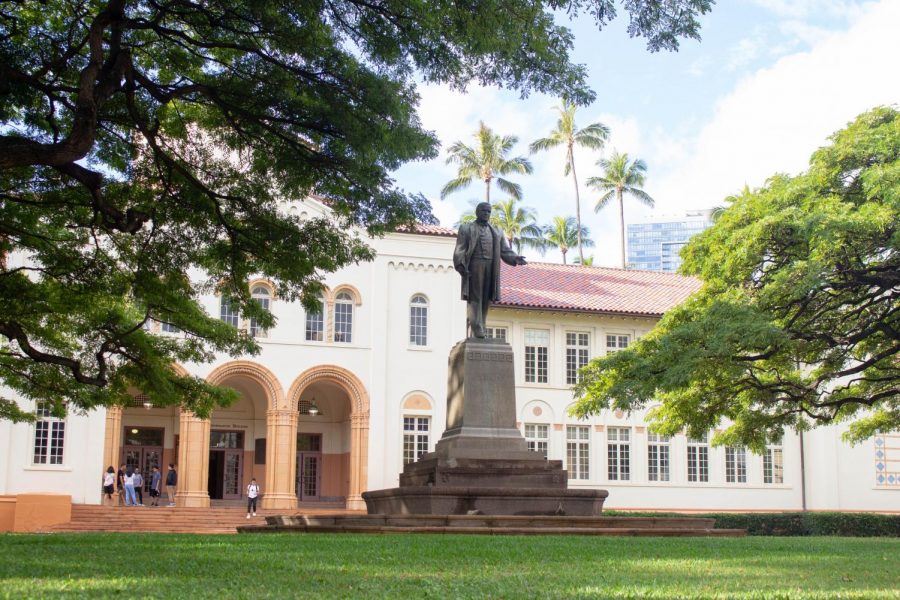Call our names
Graduates walk across the oval at the end of their ceremony, but do not get names called.
March 1, 2019
McKinley High School administrators seem to pride themselves in potentially being the only school on the island that does not call names during the commencement ceremony. This has caused controversy on campus for years between the students and administration.
Four years ago, student Netty Leviticus created a petition to have a name called graduation. Last year, the senior class held meetings trying to persuade administration for the same thing. Both attempts took a different approach to fight this McKinley tradition, but they have one thing in common: they were both ignored.
Administration claims we graduate as a class, rather than as individuals. This is overly simplistic.
Since we started school, we have worked individually to get our diploma. Sure we have the occasional tutoring session with a friend, or a group project where we have to collaborate with others, but this does not mean our class worked together for this milestone. In movies, these four years would bring us together as one big family, and I can understand why this appeals to administration. Realistically, however, that is not possible. We are all different individuals. Many of us may not talk, let alone know each other, by the time we graduate. The classes we graduate in resemble the year we finished high school, and it should not prevent us from getting the individual recognition we deserve.
Our commencement ceremony lasts less than an hour long, which is short compared to others. It is true name calling would lengthen graduation. However, that seems like a price many are willing to pay for the acknowledgement we worked years for.
There are around 300 students in this year’s senior class. This seems like a lot, but since we are only calling names and not retelling their life stories, the process should be over quickly. It was previously claimed that name calling would add two hours to the ceremony. I find that hard to believe.
During University of Hawaii Hilo’s commencement, it took them 1 minute 47 seconds to call twenty graduates, and they called not only names but their degrees as well. This is about 5.35 seconds per graduate, meaning calling names would only add about thirty minutes to our program.
I find it odd that our annual Awards Night lasts hours, yet we can not spare any more time for our seniors on their graduation day.
Awards Night mainly features seniors who have received scholarships, with various underclassmen scattered throughout the ceremony. The ceremony has a much smaller amount of students than commencement, yet we are not okay with taking time to recognize all students who have received the ultimate goal, a diploma.
The problem is the administration has the power to ignore everything the students have done to fight what we believe is wrong. They do not give us a chance to fairly decide what our commencement ceremony should consist of. There were many student-led efforts to convince administration to ditch the tradition, but none of them were listened to. If the school wants to make the most fair decision, we could take a poll to figure out how many students want to be recognized.
Admin has claimed we will be happy we did not have name calling once we have graduated, but that is not a call they should be able to make. We want our names called, and I believe our students will continue to push until we get that right.






Ansley Billena • Mar 26, 2019 at 4:05 PM
As a alumnus, I believe that the students have the right and privilege to have their names called when time comes to graduate. Yes, as the columnist has stated, the school believes that the whole class has worked together in order to graduate as a class, yet as students believe, it is also necessary to be able to call each individual person to congratulate every individual student for their accomplishment. If this is what the students of present and future want, why not listen to them.. Every student so far since my time has been denied of being individually called by our given name. Times are changing, rules of the Admin must also adapt, especially when it comes to what the students believe is right. Let this message ring loud and clear for even the McKinley’s Admin to read and soak in them, so that hopefully things do change for the present class and every class thereafter.